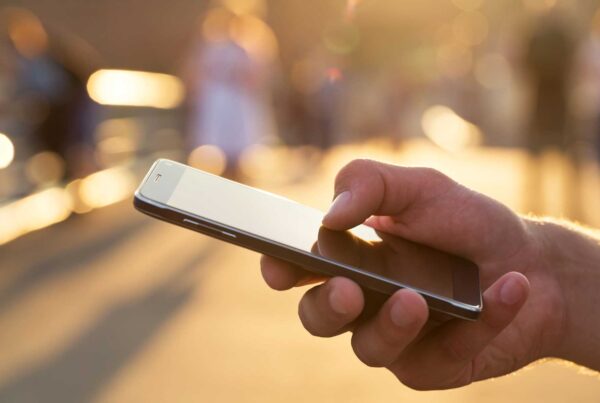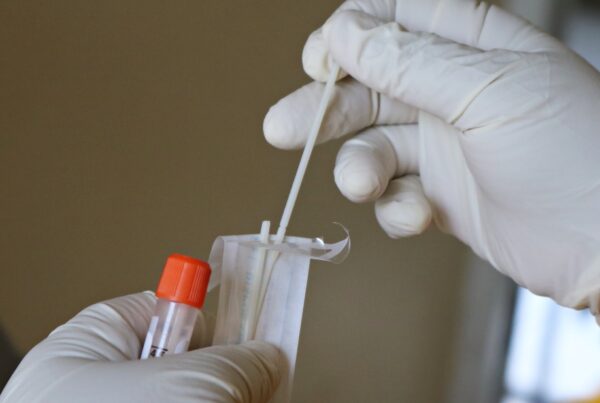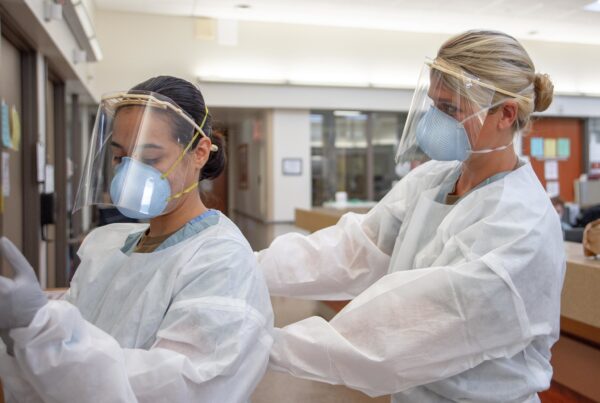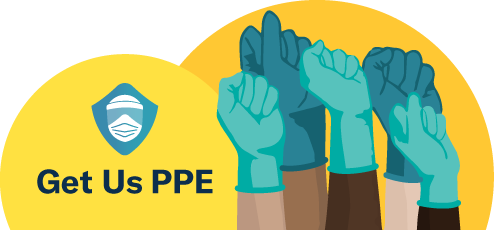By Unnati Gupta
This was historic week for the pandemic, as the coronavirus reached the inner circles of Washington, D.C. Our co-founders, including Megan Ranney, Esther Choo, and Jeremy Faust have been weighing in on this crisis, which has now infected at least seven million U.S. residents.
The Big Picture
An update on the numbers: As the president of the United States tests positive for the coronavirus, the country reaches a grim 7.3 million cases. Louisiana, Florida, and Mississippi still top the list of highest case rates (cases per 100,000 people). However, the country as a whole has seen a concerning rise in cases. As reported by CNN, data from Johns Hopkins shows that 24 states have seen more than a 10% rise in cases this past week. Furthermore, the country’s 7-day average of new cases is up 20% from September 12, now reaching 42,400 cases a week. Certain states like Kentucky have seen large increases in total cases while others such as New York report “cluster situation[s]”: specific zip codes with spikes in cases and accompanying rollbacks of in-person teaching and indoor dining. These trends have prompted many health and government officials to stress the basic precautionary measures all citizens can take: mask wearing and social distancing. This data, combined with a positive COVID-19 test from the United States president, is a stark reminder that this virus can truly affect anyone and is far from gone.
Are Postal Workers Protected From Coronavirus?
As the election nears and attention shifts heavily to the Postal Service’s ability to handle the amount of incoming mail-in ballots, many people have overlooked the lack of safety procedures in place to protect postal workers from the coronavirus. Although masks are in good supply, mask-wearing rules haven’t been enforced among workers who are unable to socially distance, and many post offices have neglected to mandate temperature checks and contact tracing.
Statistics have reflected these decisions, as positive COVID-19 cases have tripled from June to September. Furthermore, over 8% of postal employees have taken time off during this pandemic, often citing sickness or quarantine as reasons for their absence. With over 250 coronavirus complaints against the Postal Service, the disregard for social distancing and mask-wearing in many facilities is coming to light.
Success Stories: A Zoom Camp Turned PPE Fundraiser
Amidst the constant statistics and numbers of this virus, we turn to the stories of those with a large heart and a desire to make positive change. When Shannon Cheung, a 2nd year student of Molecular & Cellular Biology at U.C. Berkeley, had to make the transition to remote learning, she felt the struggle of staying home as a college student and not getting access to in-person learning. She understood that if this was difficult for college students, it must be taking a large toll on younger children.
In an effort to help young students gain back some learning opportunities lost because of this pandemic, Shannon organized an 8 week summer enrichment camp through Zoom. She recruited 10 tutors, held classes in Math, English, Art, and Science, and made the camp completely free to anyone. Besides providing a valuable learning opportunity for children, Shannon wanted to use this opportunity to donate to a good cause. She asked her fellow tutors and children’s parents to donate to Get Us PPE. Together, they were able to raise over 5 thousand dollars for Get Us PPE!
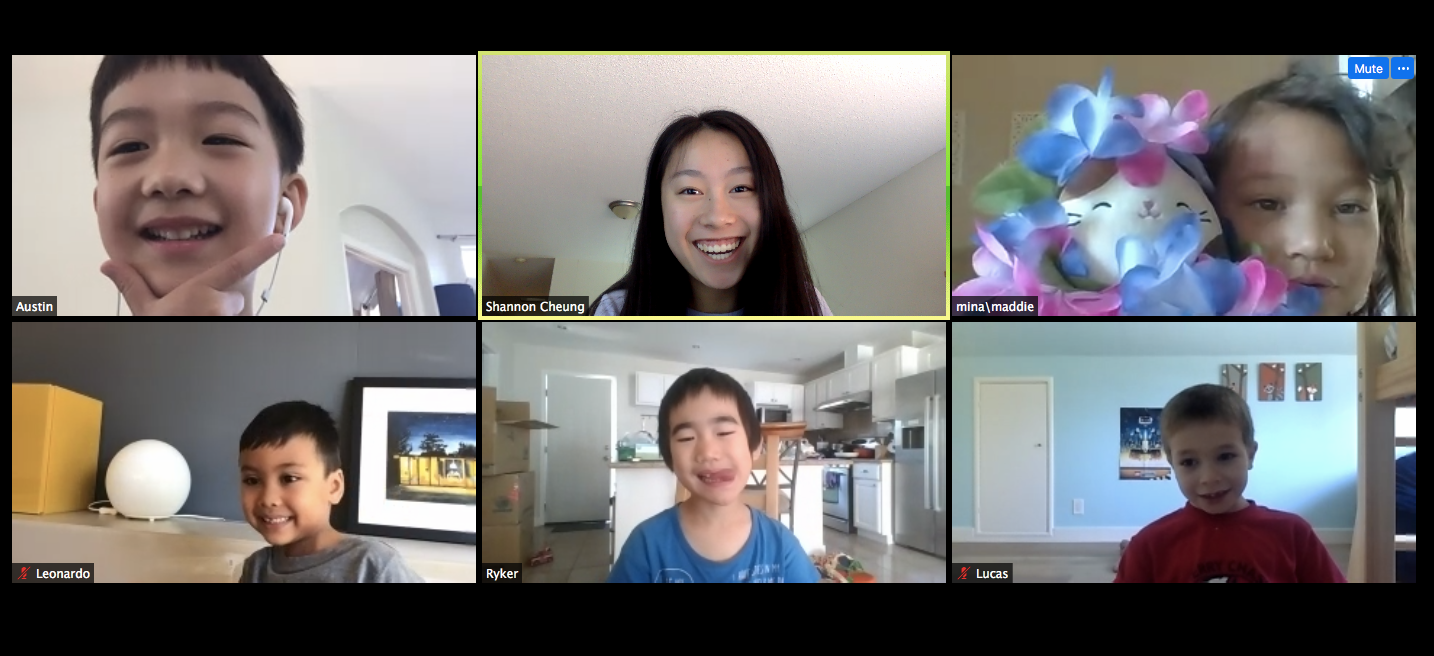
Shannon Cheung and her students
This Week at Get Us PPE: Co-Founder Megan Ranney on “Broken” U.S. Healthcare System
Dr. Megan Ranney talks to Forbes about the lack of N95 mask production taking place in the United States. After reports stating that 70% of KN95 masks produced in China do not pass the United States filtration standards emerged, concern grew over the amount of masks the United States has been importing from China. Because of the massive shortages healthcare workers are facing, many facilities have been importing equipment from China. Dr. Ranney explains that these trends show the United States’s need to increase domestic production of PPE. She states, “We at Get Us PPE are working tirelessly to donate PPE to those who need it most, but it isn’t enough.” Forbes notes that Get Us PPE has nonetheless “made significant strides in helping to fill the void of PPE in many underserved and under resourced communities across the U.S. They also advocate to shorten the duration of time to manufacture PPE.”
Dr. Esther Choo explains in the Lancet the importance of the upcoming election from a health perspective. She notes that “From a health perspective, the upcoming US election could be the most consequential in our lifetimes.” She stresses the need for federal leaders to “articulate a real plan” that can help lessen the effects and spread of COVID-19. The Lancet continues to explain how this election is unique, as it provides an opportunity for the United States to focus on health equity and social justice.
Megan Ranney spoke with Newsweek about how the U.S. has fared during the pandemic. “The U.S. healthcare system has been broken for a long time, and this pandemic has uncovered all the band-aids that we had in place,” she said.

